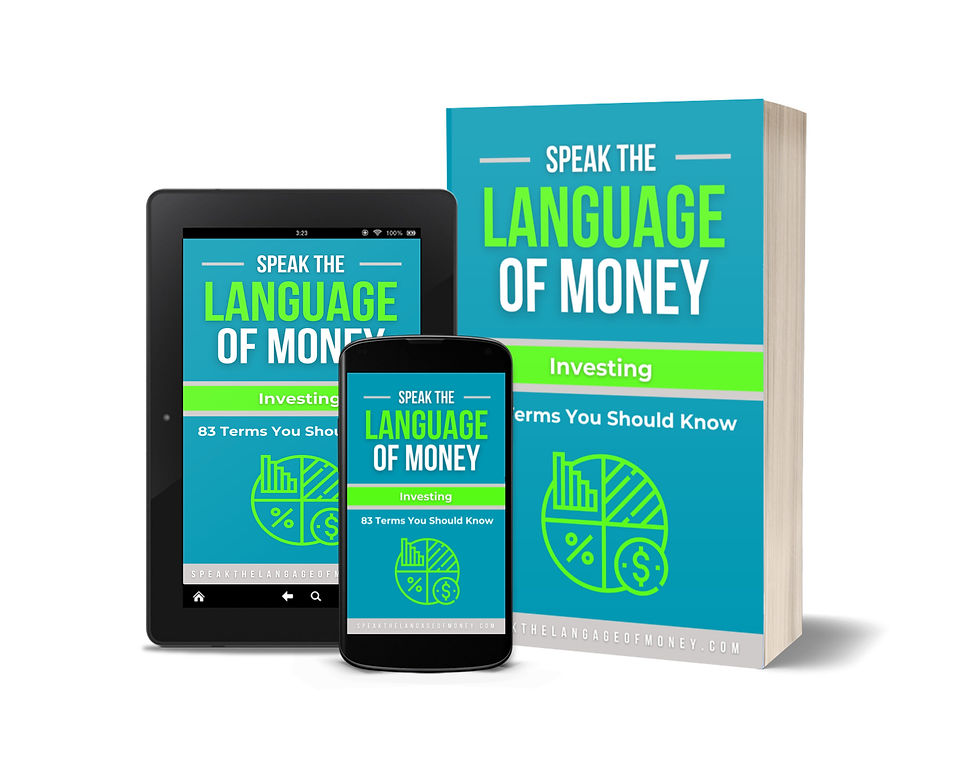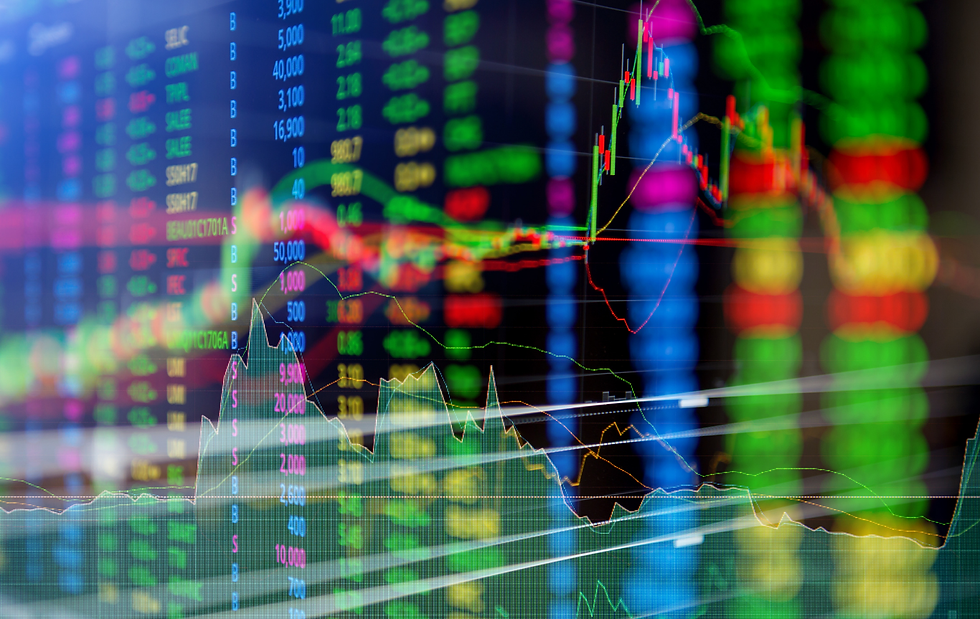Financial Word of the Day: DAX
- Larry Jones

- Sep 17, 2025
- 2 min read
Updated: Sep 23, 2025

Introduction
If you’ve ever looked at international markets, you may have seen the term DAX pop up in the headlines. But what exactly is it—and why does it matter for you as an investor or someone trying to “speak the language of money”?
Definition of DAX
The DAX, short for Deutscher Aktienindex (German Stock Index), is Germany’s version of the S&P 500 or Dow Jones. It tracks the 40 largest and most liquid companies listed on the Frankfurt Stock Exchange. Think of it as a snapshot of Germany’s corporate heavy-hitters—big names like Siemens, Adidas, BMW, Volkswagen, and Deutsche Bank often appear in this list.
The DAX is considered the benchmark index for Germany and, by extension, one of the key indicators for the European economy. Since Germany is Europe’s largest economy, investors worldwide keep an eye on it.
How Does the DAX Work?
The DAX is a market capitalization-weighted index—meaning companies with bigger market values (stock price × shares outstanding) have a larger influence on the index. For example, if a giant like SAP moves up or down in price, it can sway the DAX more than a smaller company on the list.
It’s updated every second during trading hours, so it’s highly responsive to news, market sentiment, and global economic changes.
Why Should You Care?
You might be thinking: “I don’t live in Germany, so why does this matter to me?” Good question! Here’s why:
Global Investing: Many international ETFs and mutual funds include the DAX or German companies. If you’re investing globally (which is a smart diversification move), you may already have exposure to it.
Economic Signal: The DAX can act like a thermometer for Europe’s economy. If the DAX is doing well, it often signals strong performance in the European market.
Currency Connection: Movements in the DAX are often tied to the euro. If you travel, do business in Europe, or hold investments linked to the euro, the DAX indirectly matters to your financial world.
Example in Conversation
Imagine you’re at lunch with a friend who follows markets closely. They say “The DAX closed up 2% today after the European Central Bank hinted at rate cuts.”
If you know the term, you can respond intelligently: “That makes sense—Germany’s economy drives a lot of European activity. I’ll have to check how that’s impacting the euro ETFs in my portfolio.”
Suddenly, you’ve moved from nodding politely to actually participating in the money conversation.
Bottom Line
The DAX isn’t just some obscure European acronym—it’s one of the most important stock indices in the world. It represents Germany’s top companies, reflects the health of Europe’s economy, and gives investors another way to diversify beyond U.S. borders.
Even if you never buy a share of a German stock directly, understanding the DAX means you’re better equipped to connect the dots between global markets and your own financial future.
So next time you see “DAX” in a headline, you’ll know it’s more than just letters—it’s a financial pulse check on Europe.






Comments